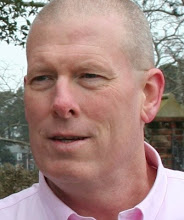Marriage and Alberta (and of course Malthus fits in)
On Tuesday, June 28, the Canadian Parliament passed a law that makes same-sex marriage federal law. Provinces are supposed to bring their provincial laws into compliance. Alberta, which separated civil jurisdiction over property and children from the act of marriage awhile ago in an effort to forestall such a change in the definition of marriage, now has to decide what to do. One option being discussed is to get out of the marriage business altogether: the province would remove mention of marriage from all provincial laws and focus solely on the property and child-related aspects of domestic partnerships of any kind.
The fact that we've gotten to this point suggests that David Levy was right about Malthus' success in radically re-writing our understanding of marriage. Within the Christian world (with a few exceptions, the major one being the Roman Catholic church!), marriage today does not mean what it meant 250 years ago. Intellectually, the shift in meaning has a lot to do with Malthus' argument for delayed marriage. Put succinctly, his argument was this: while there are negative consequences for society that come from delaying marriage, the negative consequences of early marriage (misery and infant mortality among the poor) far outweigh them. While Malthus could not have conceptualized the impact that changes in the technology of birth control would have, he understood the underlying cost-benefit analysis very well. When individuals are able to make free decisions about child-bearing, they weigh the costs and benefits in terms of their family's long-term income. When the institutional setting is one that provides incentives to accumulate wealth, people will have fewer children.
What does Malthus' argument have to do with same-sex marriage? By putting a wedge between procreation and marriage, and defining marriage primarily in non-religious terms, Malthus opened the door to the discussion we are having today in Canada and the US. Essentially, Malthus said that, from a secular society's point of view, "marriage" is an institutional arrangement that forces males to support and maintain the children they father. (We can now restate the argument in terms of both parents, of course.) Today, we accomplish those tasks via our property and child maintenance laws. While the federal government of Canada thinks it appropriate to continue to link those laws to "marriage," Alberta sees the possibility of finally separating them. "Marriage" can be whatever any group wants it to be: Christian groups have no reason to give up their traditional understanding of the concept (although most of the ones that are protesting about same-sex marrage actually do not have a traditional view of marriage, because in their counseling sessions they encourage couples to delay marriage, practice birth control, and think about the costs/benefits of raising children -- all of which are modern, post-Malthusian imports into Christianity). Meanwhile, the State (province or federal government) can simply focus on property relations and ensuring that parents do not shift the cost of their children onto taxpayers in general.
Two cheers for Alberta, and I hope they are able to pull it off.

